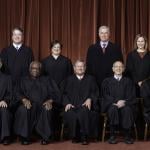I listened to a second podcast today from Company of Burning Hearts, a British charismatic mystic group I recently discovered. It’s a bit out there in terms of the encounters of the Holy Spirit being described, but the theology is sound so far. In any case, Justin Abraham says in the podcast that the church today is a lot like Nicodemus. We don’t get what it means to be born from beyond. Actually he said a different word that I can’t remember, but “beyond” captures the sense of what he was saying. We think our conversion is about having an official datetime stamp when we can say that we were “born again” so that we get through security at the pearly gates, while what Jesus is actually discussing with Nicodemus are the implications of being born into a different reality.
Nicodemus opens the conversation by asking Jesus about the miraculous signs He has been performing: “No one can do these signs that you do apart from the presence of God” (John 3:2). There’s an implied question in this statement: How do I experience the same presence of God that you experience? It’s important to read what Jesus says as a response to Nicodemus’ opening statement.
Jesus responds to Nicodemus by saying, “Very truly, I tell you, no one can see the kingdom of God without being born from above” (v. 3). Note that the spiritual birth Jesus describes has to do with our ability to see the kingdom of God; the word choice is significant and I will come back to it. The Greek word for the final preposition is anothen, which means most literally “from the top” or “from above.” It can have the derivative meaning of being “from the beginning,” kind of like when we say in a musical rehearsal, let’s start from the top, which is why the NIV felt justified using the phrase “born again.”
“From above” seems like a reference to heaven, since the word for heaven in Greek is ouranos, which is also the word for sky. Jesus later tells Nicodemus that he has been talking “about heavenly things” (v. 12) and a few verses later when John is questioned about Jesus’ baptism of people, he says, “No one can receive anything except what has been given from heaven” (v. 27). When I connect the dots of John 3 together, I see Jesus saying that we need to have the birth that is “given from heaven,” which seems to be synonymous with what He says in verse 6: “What is born of the flesh is flesh, and what is born of the Spirit is spirit.” In other words, we need to receive the birth that comes from beyond.
Nicodemus is the one who thinks that Jesus’ main point is that we have to start over: “How can anyone be born after having grown old? Can one enter a second time into the mother’s womb and be born?” (v. 4). For Nicodemus, it’s a question of status. Why should he as an elder in the Jewish community have to become a spiritual infant again? Why does he have to be born all over again?
Likewise, when we think in terms of being “born again,” we’re talking about status. If I call myself a “born-again Christian,” I’m saying that I’m not one of those “fake” Christians who can’t tell me the exact date and time when they were saved because they were born (only once) into the church and grew up Christian but never prayed a sinner’s prayer and had a Damascus Road conversion. The phrase “born-again” serves to separate insiders from outsiders, the real from the fake. It’s a phrase that has to do with status. We’ve taken our cue from Nicodemus. But the whole point of the conversation in John 3 is that Nicodemus doesn’t get it.
Being born “of the spirit” is so much more than just a status; it is the opening of our eyes to a deeper reality we had not seen before. That’s why Jesus says that this birth is the only way a person can “see the kingdom of God.” We can only behold the heavenly realm that is the source of Jesus’ miraculous signs (going back to Nicodemus’ original question) if we are born from beyond which is really also into the heavenly realm. It’s not about receiving a stamp that will gain us admission into heaven later; it’s about receiving the vision to see heaven now and thus becoming a conduit of heavenly wind (v. 8).











